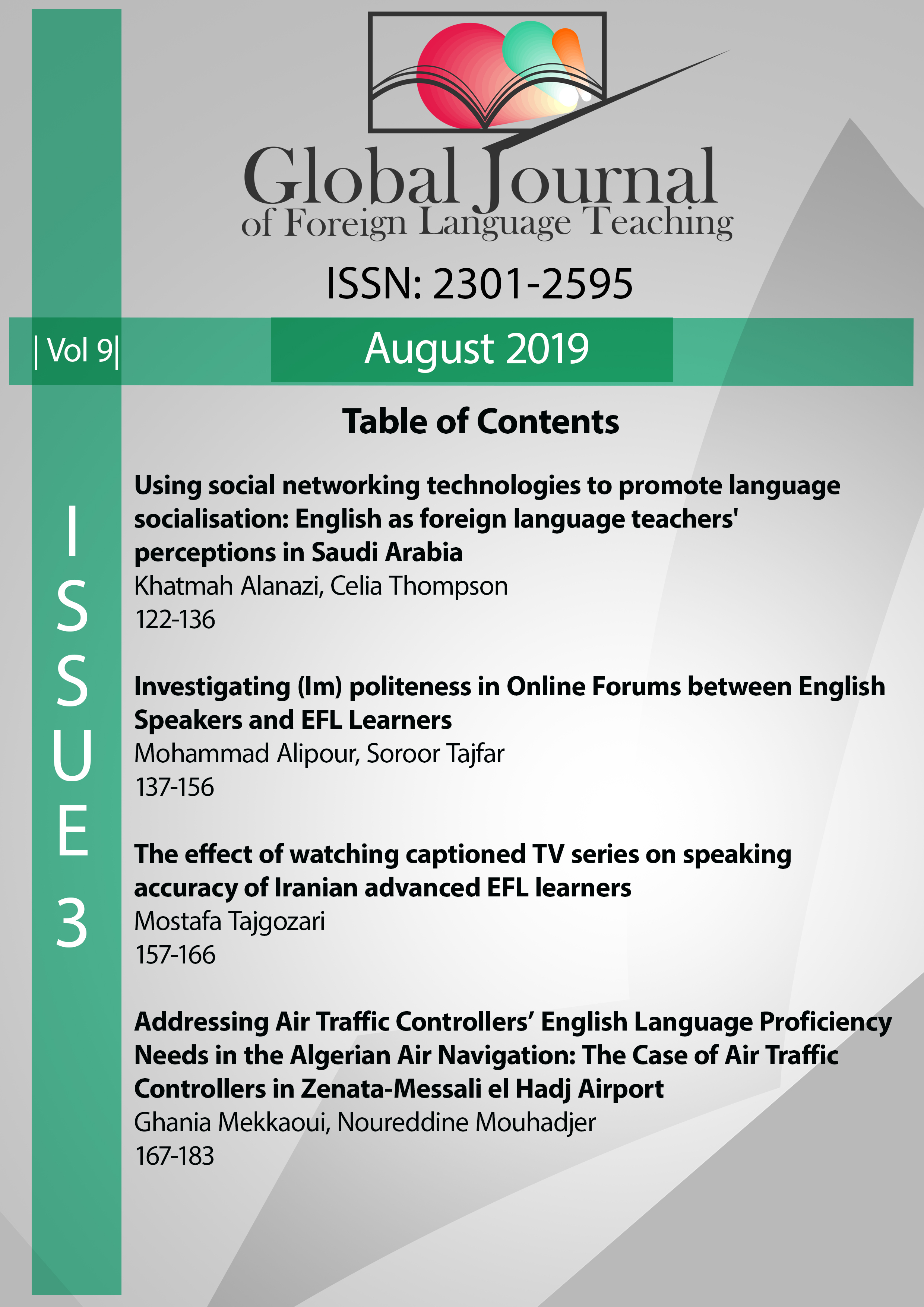Investigating (Im)politeness in online forums between English speakers and English as a foreign language learners
Main Article Content
Abstract
This study investigated the use of (im)politeness and disagreement in online discussion forums among English speakers and English as a foreign language (EFL) learners. It also explored how internet forum browsers judge (im)politeness and parameters of relational work ((in)appropriateness and negatively/positively marked behaviour) in disagreement. Three hundred and sixty disagreement responses were analysed following a list of disagreement strategies. The most frequent strategy applied by English speakers was 'making scornful and humiliating statements', while EFL learners used 'showing unmitigated disagreement' and 'showing smileys' as the highest and lowest ones. Most of the strategies used by English speakers were judged as polite and appropriate, but neither negatively nor positively marked, while 13 types of EFL strategies were considered as polite, but neither appropriate and positively marked nor inappropriate and negatively marked. Further, the three parameters had positive relationships with one another. This study provides worthwhile information for improving teaching communication skills in EFL courses.
Keywords: (Im)Politeness, disagreement, English as a foreign language learners, interactional and discursive approach, online forum
Downloads
Article Details
- Authors retain copyright and grant the journal right of first publication with the work simultaneously licensed under a Creative Commons Attribution License that allows others to share the work with an acknowledgement of the work's authorship and initial publication in this journal.
- Authors are able to enter into separate, additional contractual arrangements for the non-exclusive distribution of the journal's published version of the work (e.g., post it to an institutional repository or publish it in a book), with an acknowledgement of its initial publication in this journal.
- Authors are permitted and encouraged to post their work online (e.g., in institutional repositories or on their website) prior to and during the submission process, as it can lead to productive exchanges, as well as earlier and greater citation of published work (SeeThe Effect of Open Access).
